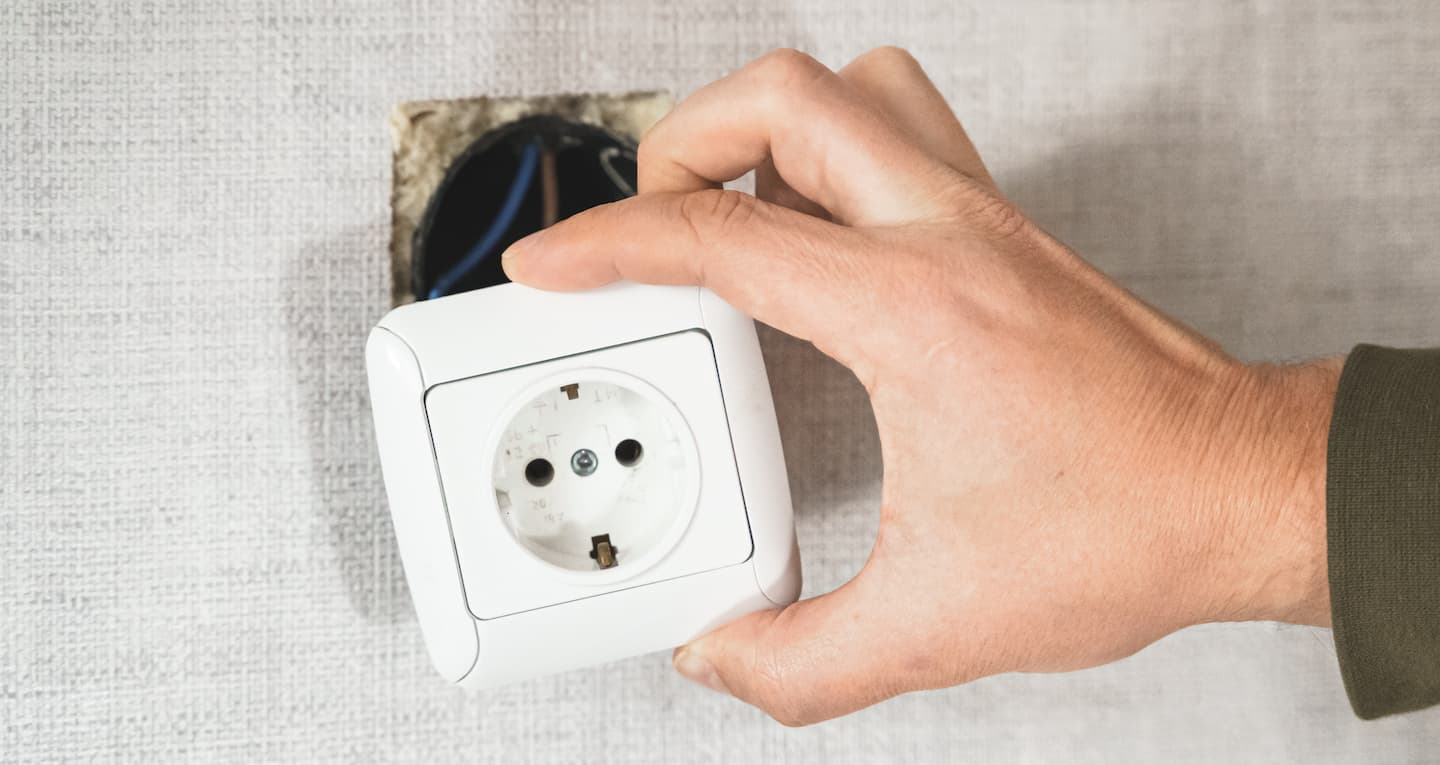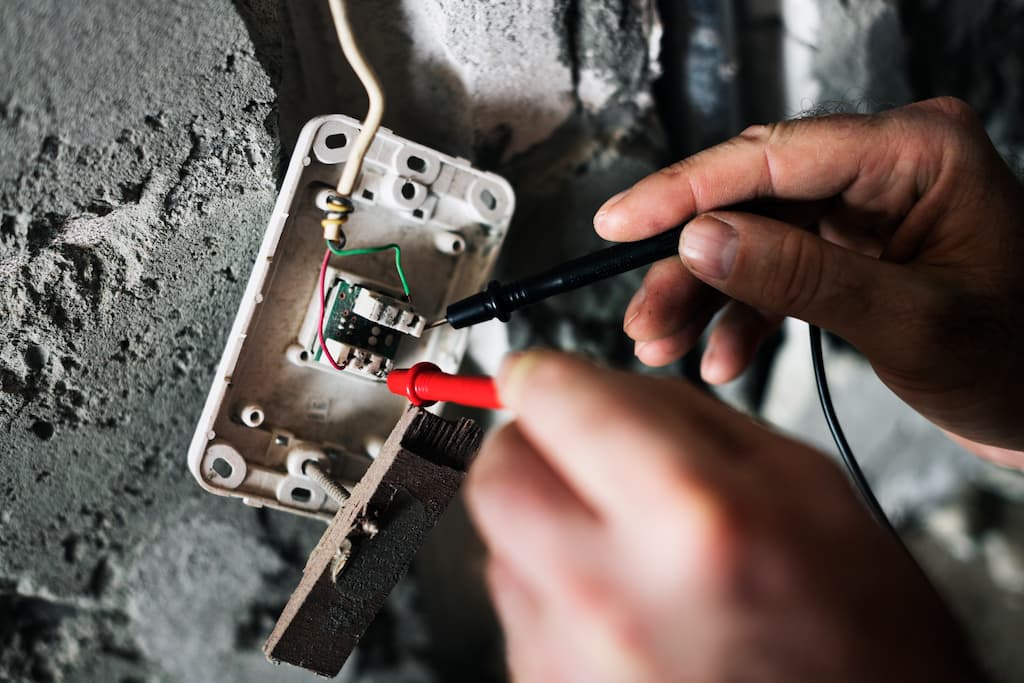
It’s no secret that emphasising the importance of electrical inspections is akin to stating the obvious. Electricity is undeniably hazardous, and ensuring the fitness of your home’s electrical systems is paramount.
Such inspections are your shield against:
- power surges
- electrical shocks
- dread of fires.
Yet, for all the discourse on their significance, have you ever wondered about the nitty-gritty of what transpires during an electrical inspection? If not, fret not. Today, our electricians in Melbourne are here to shed light on what unfolds during an electrical inspection within your home, ensuring you’re well informed about the safety measures in place.
What Happens During an Electrical Inspection?

Now that you understand the importance of electrical inspections and when they are necessary, you might be curious about the specific details of the inspection process.
While the exact procedure can vary depending on your home and its unique electrical setup, there are certain constants that you can expect to take place during an electrical inspection.
Testing Safety Switches:
The majority of electrical inspections commence with a thorough examination of your home’s switchboard.
Why this specific starting point?
The answer is straightforward: your electrical switches and fuses serve as the primary defence mechanisms in your home against electrical fires. When circuits become overloaded, these switches spring into action, swiftly cutting off the power flow to maintain safety.
Thus, it’s no wonder that this is the initial focus of the inspection. Our team ensures that your switches, and in the case of older homes, fuses, adhere to building code standards. Our electricians in Melbourne perform a visual inspection of controls and wiring coupled with voltage and electrical resistance measurements to confirm the safety and functionality of these critical components.
Inspecting Insulation:
Why would your electrician delve into inspecting insulation?
To clarify, we’re not referring to the insulation material in your ceilings and walls, but rather, electrical insulation.
This type of insulation acts as a vital shield, creating a barrier between live wires and you, ensuring your safety and that of your family.
However, with time, electrical insulators can deteriorate or become damaged, potentially resulting in exposed wiring.
Therefore, a thorough inspection of your electrical insulation is a critical part of the process to identify any issues that might compromise your safety.
Home’s Electrical Wiring Outdated:
Beyond the wear and tear that ageing wiring can experience, there’s another concern. Many older homes harbour wiring systems that are severely threatened by today’s safety standards.
One such hazardous wiring method is known as knob-and-tube wiring. In this setup, wires are left entirely uninsulated and are suspended between knobs with no protective jacket surrounding them.
This lack of insulation means nothing shields you from electric shocks, leaving your walls vulnerable to house fires. Should exposed wires come into direct contact with plaster or skin, the consequences can be painful and dangerous.
If you’re anxious about your home’s wiring, take a moment to learn more about potential wiring issues and common DIY mistakes from our Melbourne electricians to ensure the safety of your electrical system.
Ensuring Your Circuits Can Keep Up with Modern Needs
Every electrical circuit is engineered to handle a specific voltage level, representing the safest amount of electricity it can manage. However, the issue lies in the fact that many older homes must be designed with the demands of today’s modern lifestyle.
To address this, your electrician assesses the load capacity primarily by examining your switchboard. If necessary, they will also inspect every electrical appliance connected to that specific circuit to identify what might be causing the recurring power outages and ensure your home can keep up with modern electrical demands.
Electrical Safety Around Water:
It’s a universal understanding that electricity and water create a dangerous mix. That’s precisely why electrical outlets in “wet” areas of your house, such as bathrooms and kitchens, are equipped with additional safety features. While it’s wise to have ground fault circuit interrupters (GFCI) outlets installed for all your sockets, their significance is paramount in rooms where water is ever-present.
In essence, these devices serve as miniature circuit breakers integrated into individual power sockets. Instead of waiting for your switchboard to disconnect the power supply, GFCI outlets act swiftly, cutting off the power at the source. In a realm where electricity moves at lightning speed, every second is invaluable, making GFCI outlets critical in protecting your safety around water-prone areas within your home.
Your Electrician’s Final Touch: The Inspection Report
Once all the necessary checks and work are completed, your electrician wraps up by providing you with a comprehensive inspection report. This report is far more than a mere checklist – it meticulously outlines everything your electrician examined during the inspection, along with any recommended solutions.
Carnegie Electrical even includes a quote for immediate, on-the-spot fixes.
With this detailed information, you can make informed decisions about your next steps.
Furthermore, a reputable electrician will utilise a standard form that includes their electrician licence number and Australian Business Number (ABN). This not only offers you peace of mind but also serves as undeniable proof of your electrician’s expertise and competence.
When Do You Need an Electrical Inspection?
Is it time to schedule an electrical inspection for your home? There are several scenarios when it’s crucial to have your electrical system thoroughly examined:
After a Major Storm:
Following a major storm, one of the most prudent steps is to schedule an electrical inspection for your home. While storms can bring about immediate and visible damage to properties, they can also inflict hidden harm on your electrical system. Lightning strikes, heavy winds, and flooding can cause electrical issues that may not be immediately evident but pose significant risks.
An electrical inspection in the aftermath of a storm serves multiple purposes. Firstly, it can detect any apparent damage to your electrical wiring, such as exposed wires, damaged circuitry, or water infiltration. Secondly, it can reveal less visible problems, like moisture trapped within your walls or corrosion in your electrical components. Addressing these issues promptly is vital to ensure the safety of your home and prevent future complications.
Frequent Circuit-Breaker Trips:
Are your circuit breakers and fuses constantly tripping, causing disruptions in your electrical supply? This recurrent issue is more than an inconvenience – a red flag that something might be amiss within your electrical system. To address this problem and ensure the safety and reliability of your home’s electrical setup, an electrical inspection is essential.
Frequent circuit-breaker trips can result from various issues, such as overloaded circuits, short circuits, faulty appliances, or even deteriorating electrical wiring. An electrical inspection delves into the root of the problem, identifying the exact cause of these interruptions. This process involves a thorough examination of your electrical components, wiring, and circuits, and it often includes tests to measure voltage, electrical resistance, and circuit capacity.
Persistent Burning Smell:
When you detect a persistent burning smell in your home, it’s a matter that demands immediate attention. This unsettling odour is often an indication of an electrical issue that should not be ignored. To address this concern and ensure the safety of your home and loved ones, an electrical inspection is paramount.
A burning smell suggests something within your electrical system is overheating or at risk of catching fire. The scent might result from damaged wiring, overloaded circuits, or faulty electrical components. Ignoring this smell can lead to potentially hazardous consequences, including electrical fires.
Moving into a New Home:
When you move into a new property, it’s an exciting time filled with hopes and possibilities. However, amidst the excitement, it’s essential to prioritise safety, and one way to do that is by arranging an electrical inspection. Even if the house looks immaculate on the surface, you can’t be sure of its electrical condition, which might hide concealed issues.
During an electrical inspection of a new home, the electrician will thoroughly assess the electrical system to ensure it meets safety standards. They will check for any hidden electrical problems that might not be immediately apparent, such as loose wires, overloaded circuits, or outdated components. These concealed issues can pose safety hazards or result in electrical malfunctions down the line.
Owning an Older Home:
An electrical inspection for an older home serves as a vital safety assessment, identifying potential hazards and deficiencies that need addressing. The examination helps homeowners ensure that their electrical system is not only up to code but also optimised for safety and efficiency. It’s a proactive approach to safeguard your home, protect your family, and bring your electrical system up to modern standards, reducing the risk of electrical issues and enhancing your peace of mind.
Energy-Intensive Businesses:
Some businesses, like factories and cold storage facilities, have a substantial demand for electrical power. To accommodate these heavy energy requirements, specialised equipment often requires dedicated circuits. Given the extreme levels of electricity involved, frequent electrical inspections are not just a choice but a necessity.
Electrical inspections in energy-intensive businesses serve a dual purpose of preventing potential electrical accidents and fires due to the substantial voltage and energy demands of these facilities, thus safeguarding employees’ well-being and the seamless operation of the business.
These inspections act proactively, identifying issues before they reach emergency levels. Moreover, these regular assessments ensure that the electrical infrastructure maintains peak performance, decreasing the chances of unplanned power disruptions. These inspections play a vital role in proactive maintenance and risk mitigation.
Keep in mind that electrical faults account for a significant portion of house fires, so addressing these symptoms promptly is crucial for your safety and peace of mind. To learn more about when you should schedule your next inspection, consult our electrician in Melbourne and explore our money-saving electrical tips to help you reach your financial goals.
Need an electrical inspection?
Contact Carnegie Electrical today!
Ensure the safety and reliability of your electrical system.
- 30+ Years’ Experience in The Electrical Industry
- Member of The Master Electrician
- Work Performed to The Highest Standard
Don’t wait for electrical issues to become emergencies. Take action now to protect your home or business.
